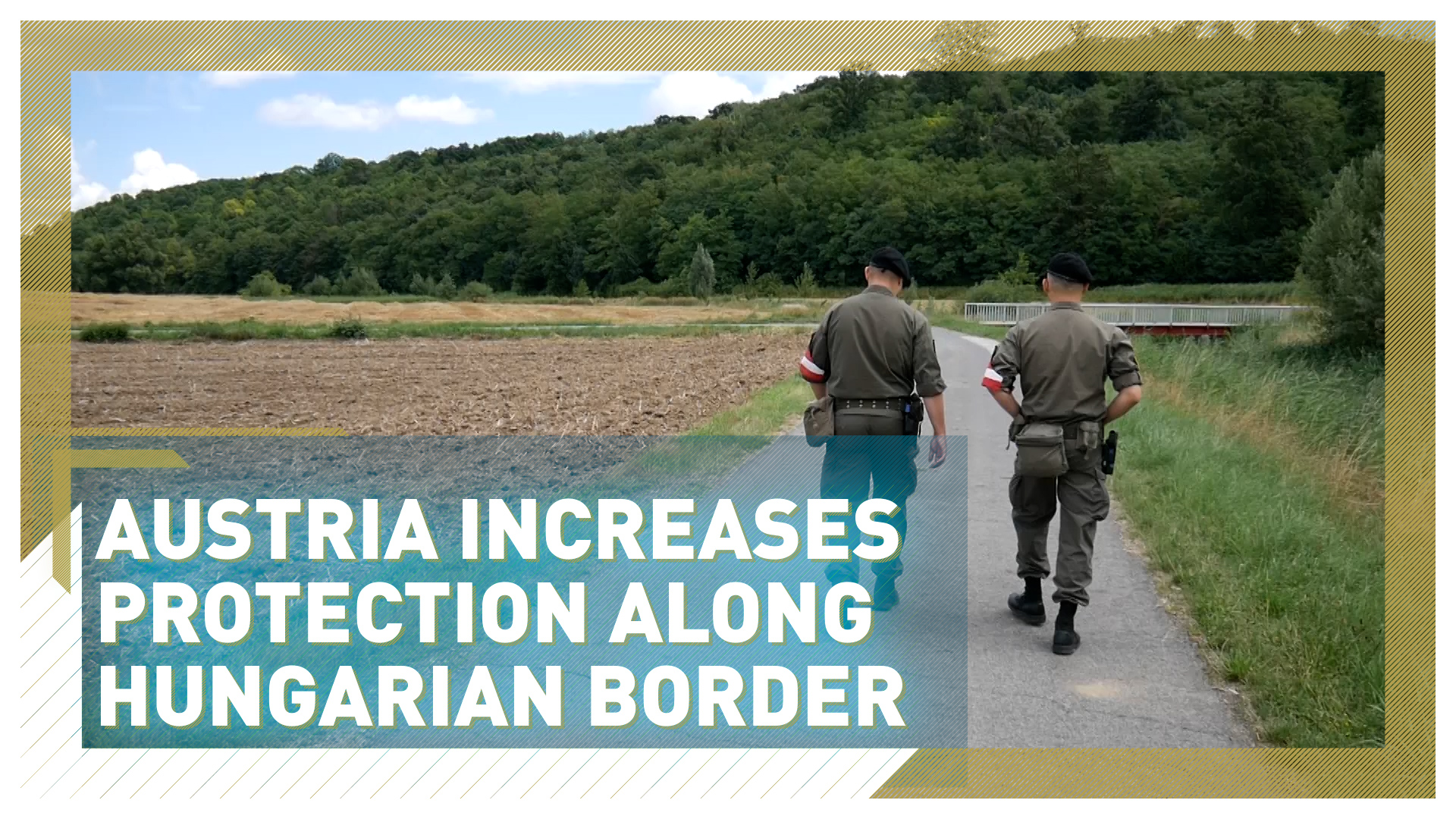02:59

With the abolition of some COVID-19 travel restrictions, the number of refugees trying to reach Europe is increasing again.
Asylum seekers who had made it to Eastern Europe are now on the move in growing numbers, not just to Lithuania but also to Austria.
Smugglers are taking those seeking a better life in Europe to the Austrian-Hungarian border. They then continue on foot, meeting at gathering points in Austrian forests. Clothes that are no longer needed are left behind.
The refugees were stuck in the Balkans when countries shut their borders due to COVID-19. Now many are back on the move, heading for central and northern Europe.
CGTN Europe accompanied Robert Kulterer, a member of the Austrian armed forces, during a border patrol in the hotspot Burgenland, the easternmost state of Austria.
Three weeks ago, 28 migrants were discovered in a small truck in the area, and some were unconscious.
"They had too little water, they were nearly drying out," said Kulterer. "We helped them, in this case."
Kulterer added that in a similar incident, refugees had been far less lucky. In 2015, 75 suffocated to death inside a similar truck not far from this border patrol's posting. Four traffickers were found responsible and were later given life sentences in Hungary.
"Now the problem is that again we are having many people trying to enter Austria at the moment. The number of refugees increases day by day," he said.
Soldiers in Burgenland have been apprehending up to 600 asylum seekers each week. In the last seven months, there have already been more migrants detained than in the previous three years combined.

A member of Austria's border patrol monitoring the Austrian-Hungarian border border. /CGTN Europe
A member of Austria's border patrol monitoring the Austrian-Hungarian border border. /CGTN Europe
However, Burgenland's deputy provincial police director Werner Fasching told the public broadcaster ORF that he does not expect to see images like those of 2015, when refugees numbers reached an estimate of a million in Austria and Central Europe.
Kulterer, who had also been posted at Bosnia's infamous refugee camps, is happy with Austria's military presence at the border. "With our increasing of forces – working together with the police – we can handle this situation much better," he said.
Currently, 1,400 security personnel patrol Austria's borders, but 400 more soldiers will join them at the end of the month. The soldiers use thermal imaging cameras, drones and armored cars.
In contrast to Hungary, Austria does not pass the refugees on to neighboring countries. Instead, soldiers immediately begin the asylum process.
It means increasing pressure on the relatively small country. Interior Minister Karl Nehammer said Austria feels abandoned by the EU. "The European Commission is not acting," he said. "That is why we are acting ourselves."

An image of Kübra Atasoy, the head of the Viennese NGO Asylum in Need. /CGTN Europe
An image of Kübra Atasoy, the head of the Viennese NGO Asylum in Need. /CGTN Europe
From Nehammer's point of view, the ministry must protect the citizens of Austria from irregular migration.
"We are working hard on the issue of repatriations," he said. "There is a European initiative by Austria that we continue to deport to Afghanistan, for example, and we are also stepping up deportations to that end."
While violence continues to escalate in Afghanistan, Turkey has been trying to stop the influx of Afghan refugees by building a wall.
Kübra Atasoy, head of the Viennese NGO Asylum in Need, told CGTN Europe that European countries need to help those fleeing their home countries.
"We are warning against striking any new refugee deal with Turkey as a so-called safe country," Atasoy said. "It is not safe. It is not in compliance with international treaties.
"People have to live in camps in Turkey without actual access to education, safe work conditions, health care and especially the protection of women are not granted in Turkey – especially if you take a look at how Turkey left the Istanbul Convention."
The redistribution of refugees in Europe remains a hot topic in many countries.

